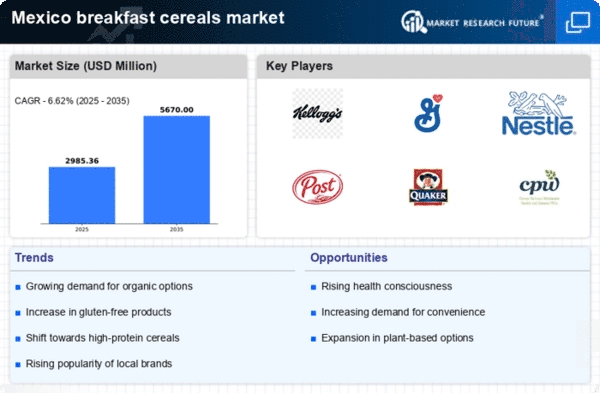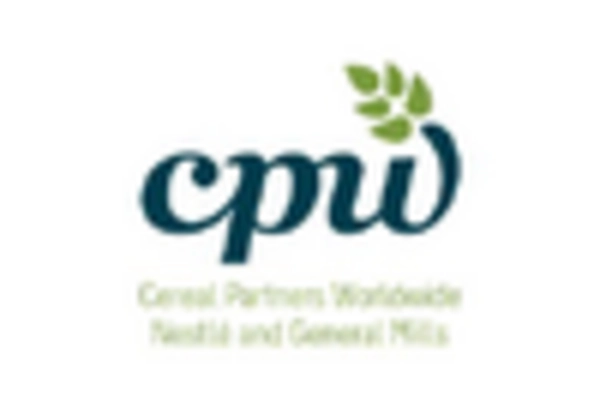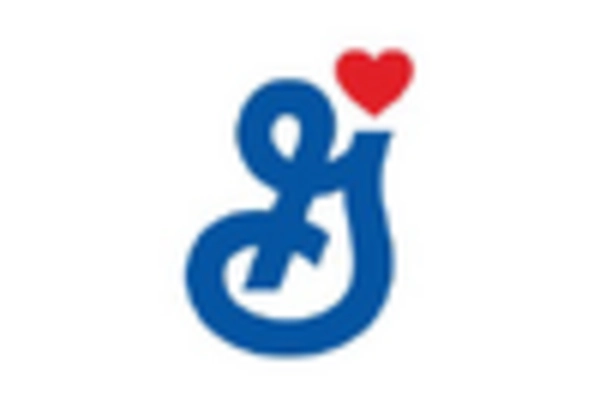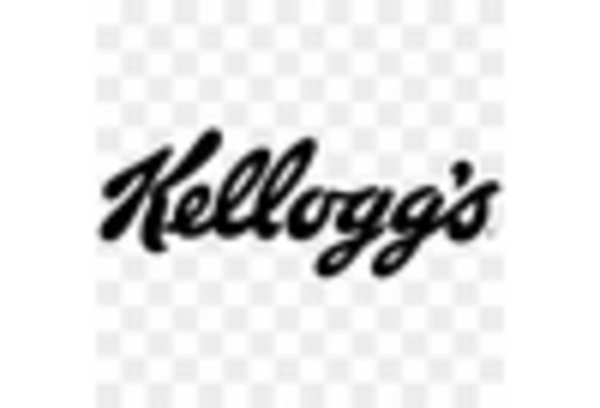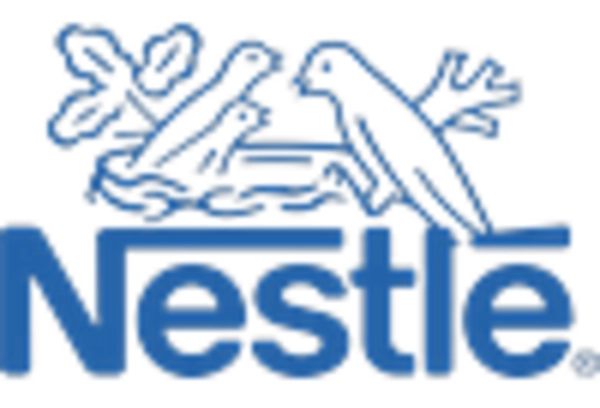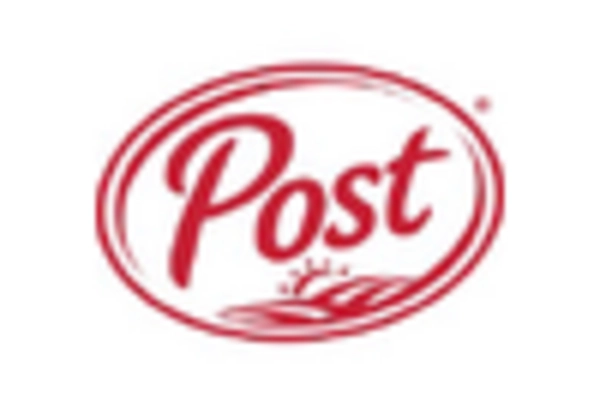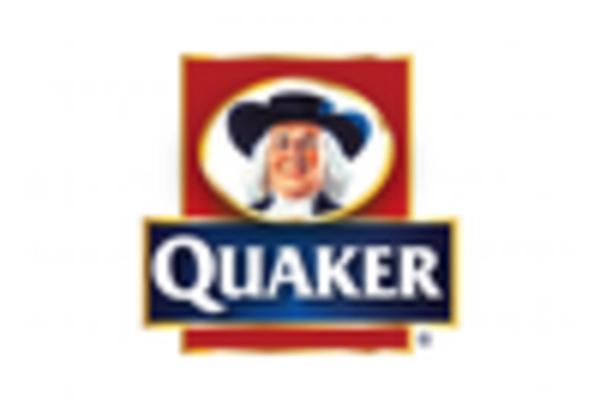Increased Urbanization
Urbanization in Mexico is contributing significantly to the dynamics of the breakfast cereals market. As more people migrate to urban areas, lifestyles are changing, leading to a greater need for convenient and quick meal solutions. The fast-paced life in cities often leaves little time for traditional breakfast preparation, thus driving the demand for ready-to-eat cereals. Recent statistics indicate that urban areas have seen a 20% increase in cereal consumption over the past five years. This trend suggests that manufacturers may need to focus on developing products that cater to the busy urban consumer, potentially leading to innovations in packaging and product offerings within the breakfast cereals market.
Growing E-commerce Adoption
The rise of e-commerce in Mexico is reshaping the breakfast cereals market by providing consumers with greater access to a variety of products. Online shopping platforms are increasingly popular, allowing consumers to purchase breakfast cereals conveniently from their homes. This shift is particularly appealing to younger demographics who prefer the ease of online shopping. Data shows that online sales of breakfast cereals have surged by 30% in the last year, indicating a significant change in purchasing behavior. As e-commerce continues to grow, it is likely that brands will invest more in digital marketing strategies to capture this expanding market segment, thereby influencing the overall landscape of the breakfast cereals market.
Rising Health Consciousness
The increasing awareness of health and nutrition among consumers in Mexico appears to be a pivotal driver for the breakfast cereals market. As individuals become more informed about the benefits of a balanced diet, there is a noticeable shift towards healthier breakfast options. This trend is reflected in the growing demand for cereals that are low in sugar and high in fiber. According to recent data, the market for health-oriented breakfast cereals has expanded by approximately 15% in the last year alone. Consumers are actively seeking products that offer nutritional benefits, such as whole grains and added vitamins. This shift in consumer preferences is likely to encourage manufacturers to innovate and reformulate their products to meet these demands, thereby shaping the breakfast cereals market in Mexico.
Innovations in Product Offerings
Innovation within the breakfast cereals market is a crucial driver, as manufacturers strive to differentiate their products in a competitive landscape. The introduction of unique flavors, organic ingredients, and functional cereals that cater to specific dietary needs is becoming increasingly common. For instance, cereals fortified with probiotics or those targeting specific health concerns are gaining traction among consumers. Recent market analysis suggests that innovative products account for nearly 25% of total sales in the breakfast cereals market. This trend indicates that companies must prioritize research and development to create appealing and health-oriented options that resonate with the evolving preferences of Mexican consumers.
Influence of Marketing and Advertising
Marketing strategies play a vital role in shaping consumer perceptions and preferences within the breakfast cereals market. Effective advertising campaigns that highlight the nutritional benefits and convenience of cereals can significantly influence purchasing decisions. In Mexico, brands are increasingly utilizing social media and influencer partnerships to reach a broader audience, particularly younger consumers. Recent surveys indicate that approximately 40% of consumers are swayed by marketing efforts when choosing breakfast cereals. This suggests that companies must invest in innovative marketing techniques to effectively communicate their product offerings and engage with consumers, ultimately impacting the growth trajectory of the breakfast cereals market.


